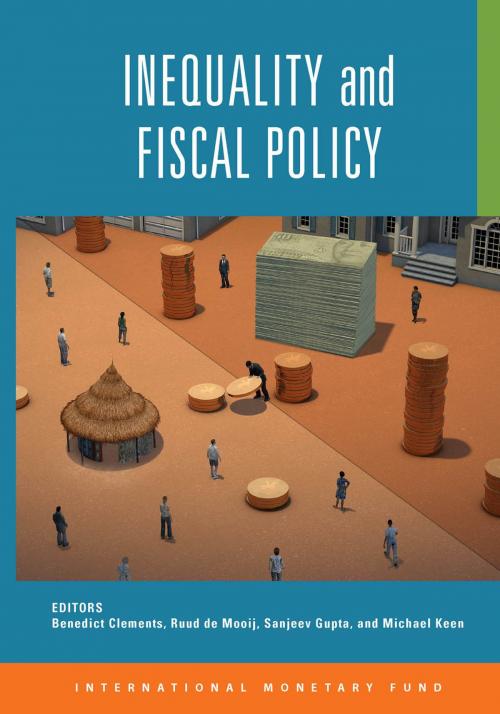| Author: | Benedict Mr. Clements, Ruud Mooij, Sanjeev Mr. Gupta, Michael Mr. Keen | ISBN: | 9781513509990 |
| Publisher: | INTERNATIONAL MONETARY FUND | Publication: | September 21, 2015 |
| Imprint: | INTERNATIONAL MONETARY FUND | Language: | English |
| Author: | Benedict Mr. Clements, Ruud Mooij, Sanjeev Mr. Gupta, Michael Mr. Keen |
| ISBN: | 9781513509990 |
| Publisher: | INTERNATIONAL MONETARY FUND |
| Publication: | September 21, 2015 |
| Imprint: | INTERNATIONAL MONETARY FUND |
| Language: | English |
The sizeable increase in income inequality experienced in advanced economies and many parts of the world since the 1990s and the severe consequences of the global economic and financial crisis have brought distributional issues to the top of the policy agenda. The challenge for many governments is to address concerns over rising inequality while simultaneously promoting economic efficiency and more robust economic growth. The book delves into this discussion by analyzing fiscal policy and its link with inequality. Fiscal policy is the government’s most powerful tool for addressing inequality. It affects households ‘consumption directly (through taxes and transfers) and indirectly (via incentives for work and production and the provision of public goods and individual services such as education and health). An important message of the book is that growth and equity are not necessarily at odds; with the appropriate mix of policy instruments and careful policy design, countries can in many cases achieve better distributional outcomes and improve economic efficiency. Country studies (on the Netherlands, China, India, Republic of Congo, and Brazil) demonstrate the diversity of challenges across countries and their differing capacity to use fiscal policy for redistribution. The analysis presented in the book builds on and extends work done at the IMF, and also includes contributions from leading academics.
The sizeable increase in income inequality experienced in advanced economies and many parts of the world since the 1990s and the severe consequences of the global economic and financial crisis have brought distributional issues to the top of the policy agenda. The challenge for many governments is to address concerns over rising inequality while simultaneously promoting economic efficiency and more robust economic growth. The book delves into this discussion by analyzing fiscal policy and its link with inequality. Fiscal policy is the government’s most powerful tool for addressing inequality. It affects households ‘consumption directly (through taxes and transfers) and indirectly (via incentives for work and production and the provision of public goods and individual services such as education and health). An important message of the book is that growth and equity are not necessarily at odds; with the appropriate mix of policy instruments and careful policy design, countries can in many cases achieve better distributional outcomes and improve economic efficiency. Country studies (on the Netherlands, China, India, Republic of Congo, and Brazil) demonstrate the diversity of challenges across countries and their differing capacity to use fiscal policy for redistribution. The analysis presented in the book builds on and extends work done at the IMF, and also includes contributions from leading academics.















